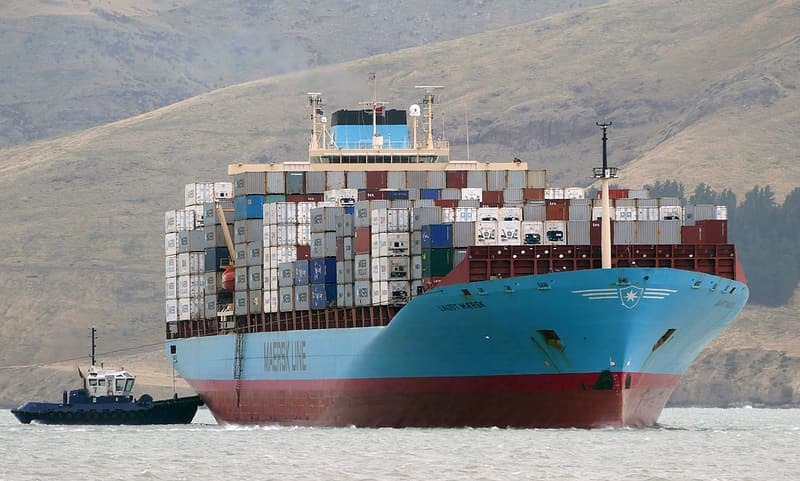In its forecast, Moody’s expects normalization of economic activity no earlier than the second half of this year. From the point of view of the rating agency, this is the baseline scenario of the situation. Moreover, “the ability of some companies to overcome the consequences of the epidemic is very dependent on its duration. Therefore, we want to immediately warn that at present there is a higher than usual level of uncertainty that can affect our forecasts,” Moody's analysts emphasized and added that their estimates are based on an analysis of the situation and data collected by mid-March 2020 of the year.
Moody’s divided the sectors into three parts, from those that are most prone to the crisis to the least. The first group included almost all types of tourism, such as tourists themselves, hotels, entertainment, gambling, air and sea transportation. In addition, the production of cars and clothes, non-food retail are included in the high-risk zone.
The agency analysts note that the sectors with the highest risk are very closely related to the movement of people, which is currently very limited due to massive quarantines and border closures in many countries.
Last Sunday, one of the largest travel companies in the world, the German Tui Group, announced the temporary suspension of almost all of its tours, cruises and hotel operations. The company also announced that it intends to apply for government support in order to support the business until operations are fully resumed.
On Monday, one of the largest cruise operators in the world, the British-American Carnival Corporation, announced an urgent loan of $ 3 billion to help the company cope with suspension of operations due to the coronavirus epidemic.
In turn, according to Moody’s, the production of cars and clothes will suffer not only from falling demand from consumers, but also because of the disruption of the logical chains that are closely connected with China and Europe - the two main foci of the epidemic.
The report’s authors identified the oil and gas sector, the media sector, industrial production, beverage production, metallurgy, mining and chemical industries, agriculture, and service companies as a group with a medium level of risk. Moody’s believes that this business will suffer indirect damage, primarily due to a general slowdown in the economy and lower prices for raw materials, such as oil, gas and metals. In addition, analysts note that many oil and gas and mining companies are state-related, therefore their credit ratings are also associated with the sovereign ratings of their countries - that is why the credit ratings of such companies will show greater resistance compared to fully private companies.
In the group of sectors that will show the greatest resistance, food retail, telecommunications, construction, pharmaceuticals, packaging, cleaning and recycling are mentioned.
Moody’s believes that food retail and the packaging business may even benefit from stable demand for their products in the current environment, but may suffer if their supply chains are broken.
Telecom and technology will also benefit as more people quarantine and/or work with remote access. Pharmaceuticals and recycling may also benefit from increased demand for their products/services, which are vital in the current environment.
source: moodys.com
Moody’s divided the sectors into three parts, from those that are most prone to the crisis to the least. The first group included almost all types of tourism, such as tourists themselves, hotels, entertainment, gambling, air and sea transportation. In addition, the production of cars and clothes, non-food retail are included in the high-risk zone.
The agency analysts note that the sectors with the highest risk are very closely related to the movement of people, which is currently very limited due to massive quarantines and border closures in many countries.
Last Sunday, one of the largest travel companies in the world, the German Tui Group, announced the temporary suspension of almost all of its tours, cruises and hotel operations. The company also announced that it intends to apply for government support in order to support the business until operations are fully resumed.
On Monday, one of the largest cruise operators in the world, the British-American Carnival Corporation, announced an urgent loan of $ 3 billion to help the company cope with suspension of operations due to the coronavirus epidemic.
In turn, according to Moody’s, the production of cars and clothes will suffer not only from falling demand from consumers, but also because of the disruption of the logical chains that are closely connected with China and Europe - the two main foci of the epidemic.
The report’s authors identified the oil and gas sector, the media sector, industrial production, beverage production, metallurgy, mining and chemical industries, agriculture, and service companies as a group with a medium level of risk. Moody’s believes that this business will suffer indirect damage, primarily due to a general slowdown in the economy and lower prices for raw materials, such as oil, gas and metals. In addition, analysts note that many oil and gas and mining companies are state-related, therefore their credit ratings are also associated with the sovereign ratings of their countries - that is why the credit ratings of such companies will show greater resistance compared to fully private companies.
In the group of sectors that will show the greatest resistance, food retail, telecommunications, construction, pharmaceuticals, packaging, cleaning and recycling are mentioned.
Moody’s believes that food retail and the packaging business may even benefit from stable demand for their products in the current environment, but may suffer if their supply chains are broken.
Telecom and technology will also benefit as more people quarantine and/or work with remote access. Pharmaceuticals and recycling may also benefit from increased demand for their products/services, which are vital in the current environment.
source: moodys.com





